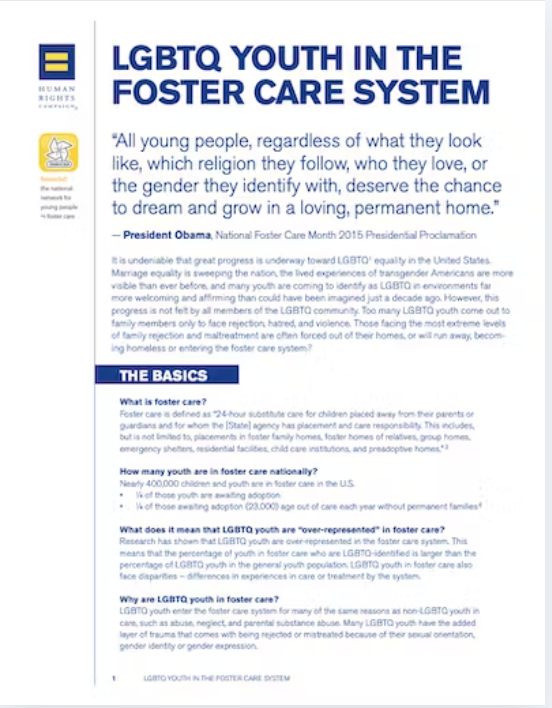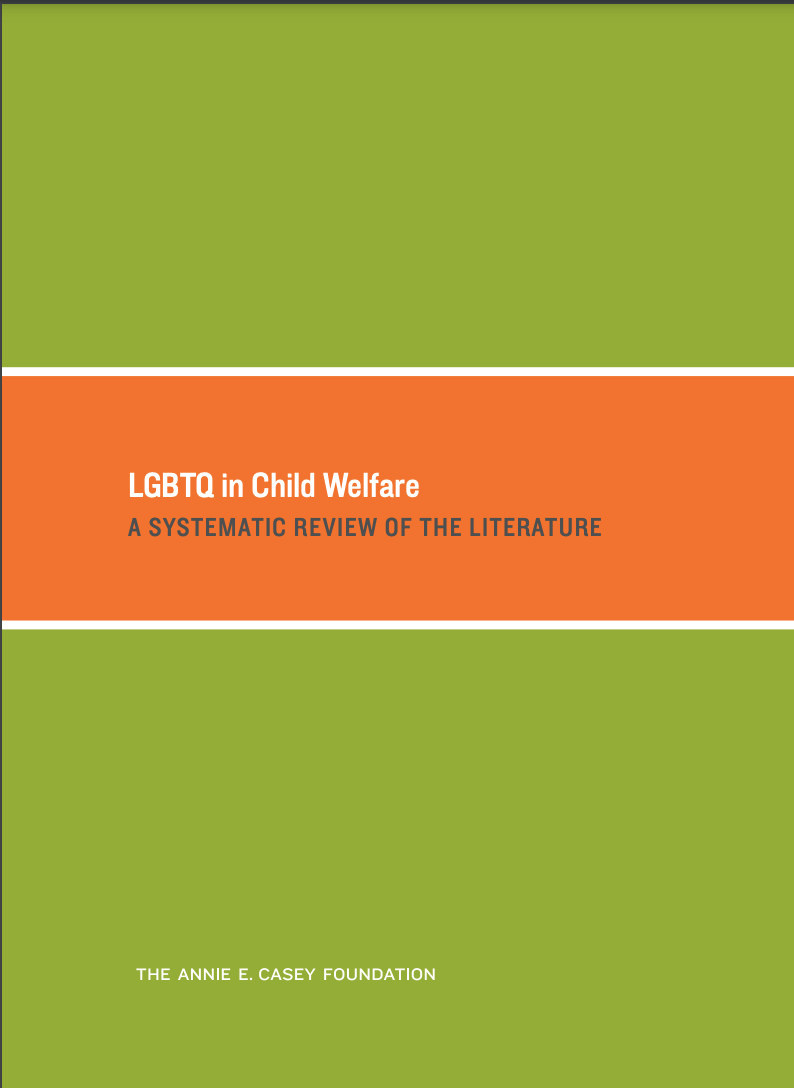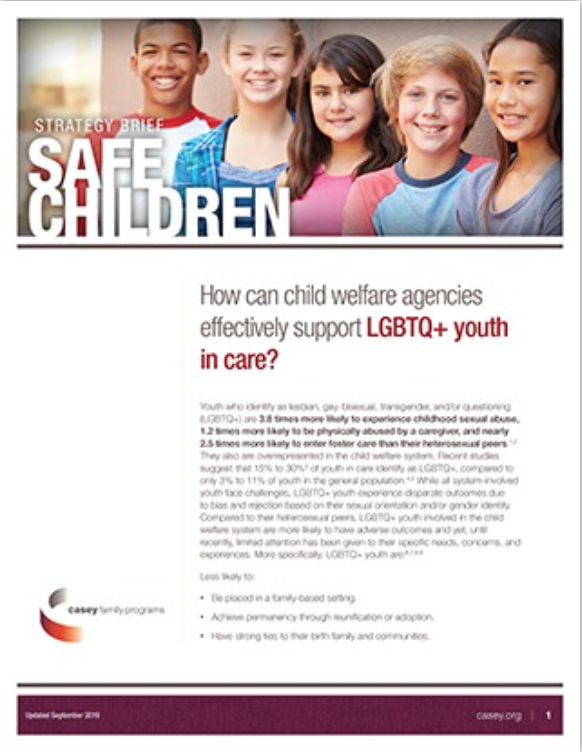
Permanency rates are declining for older youth in foster care.
One in four youth exiting foster care lack lasting connections to family or supportive adults. FosterClub believes that meaningful relationships post-care significantly enhance their chances to thrive.
Why it matters
Young people in foster care often struggle to form lasting, supportive relationships. Such enduring and supportive relationships have proven to aid former foster youth in securing housing, education, and stable jobs. Professionals working with these youth should prioritize reconnecting them with birth families, chosen families, and other supportive figures through various means, including mentorship and community involvement.
There are 3 different types of permanency:
Legal Permanency
Legal family relationships like adoptive parents
Relational Permanency
Emotionally supportive relationships like a teacher or mentor
Cultural Permanency
Feeling connected to one’s culture/traditions
Quick Facts
- Youth who exit care without permanency are more likely to experience homelessness, poverty, and/or mental health challenges (source).
- Black and Native American youth are less likely to have supportive adult relationships after exiting foster care. (source)
- 1 in 4 youth in foster care will live in a group placement setting (source). Youth in group placements are less likely to have supportive relationships with adults after exiting care (source).
“When I started high school, my life was in a downward spiral. I was fortunate enough to have some people that recognized that I had something better to offer and that I had the choice to change my life around. Without these people, I don’t know if I’d be here today.”
— Former foster youth
Wanna learn more?
Tools you can use
- When thinking about how to help foster youth maintain permanent relationships, always let lived experience guide your process. Here is what our friends at the National Foster Youth Advisory Council had to say about promoting permanency.
- Visit Coaching is a program to help birth parents connect with their kids during family visitation.
- Here is a fact sheet of how caregivers can connect with birth parents in the hopes of family reunification.
“They have each been very supportive of my goals. Never held judgment or bias against me for things that occurred previous to or while in care. Even after care.
— Former foster youth from Oklahoma
How we're working on this issue

Journey to Success Campaign
FosterClub helps lead the Journey to Success Campaign, championing the rights of older foster youth, especially their right to permanency. Through Washington DC visits, virtual training for child welfare professionals, and informative briefs, FosterClub collaborates with esteemed partners like Think of Us, American Academy of Pediatrics, Youth Law Center, and Partnership for America’s Children to amplify its impact.

National Foster Care Youth & Alumni Policy Council Priorities
The National Foster Care Youth + Alumni Policy Council's LEx members inform federal policymakers about real-life foster care experiences and advocate for vital child welfare reforms. For over a decade, they've emphasized the importance of permanency in the foster care system. Explore their priority statements here, here, and here.

FosterClub's Permanency Pact
FosterClub's Permanency Pact is a collaborative tool, developed with LEx and adults, designed to assist youth and their support teams in achieving lasting permanency.
Blogs on Permanence

"Beyond Placement: Fostering Lifelong Support and Belonging": Expert Insights from Lived Experience Leaders
FosterClub Leadership Celebrates Supreme Court Upholding ICWA
The Supreme Court recently issued a 7-2 decision on the Brackeen v. Haaland case, fully affirming the constitutionality of the Indian Child Welfare Act (ICWA) and dismissing all arguments against it. We at FosterClub, alongside our membership and network of Lived Experience Leaders, join advocates and tribal nations in hailing this significant ruling. The Court's decision sustains ICWA's protections for...
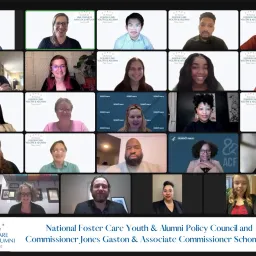
Council Members share Immigration Priority with Federal Leaders
This week, the National Foster Care Youth & Alumni Policy Council engaged with newly confirmed Administration of Children, Youth & Families Commissioner Rebecca Jones Gaston and Children’s Bureau Associate Commissioner Aysha Schomburg and members of their team. Council Members shared their newly published priority: Supporting Immigrant Children & Youth in Foster Care. Members were able to share reflections, personal experiences...
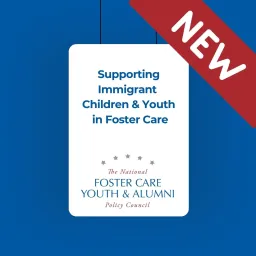
New Priority Released: Supporting Immigrant Youth & Children in Foster Care
The National Foster Care Youth & Alumni Policy Council is pleased to release its 19th priority statement: Supporting Immigrant Children & Youth in Foster Care. Recent years have seen an increase in attention to children who enter the United States as immigrants. While the focus has largely been on those who enter via the southern border, the experiences of youth...

Improving How We Support Young People in Achieving Permanency
Written by Aleks Talsky, Member of the ACF All-In Youth Engagement Team Policymakers, agencies, and professionals continue to expand and develop best practices around achieving permanency for young people served by the child welfare system. Whether it is adoption, reunification, or guardianship, the path to permanency can look very different depending on the situation and the best interest of the...
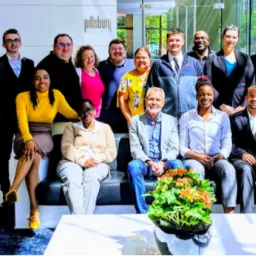
New Recommendations Released - Historic Opportunity for Reform in Child Welfare: Older Youth Successful Transition to Adulthood
Today, the National Foster Care Youth & Alumni Policy Council released a new statement: A Historic Opportunity to Reform the Child Welfare System: Youth & Alumni Priorities on Older Youth Successful Transition to Adulthood with 4 priorities with consideration on how to move towards a 21st Century Child Welfare System. Priority 1: Well-Being: We need continuity of health services that...

